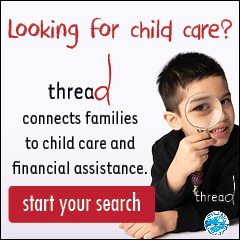Helping your child cope with loss
By Amy Newman

Death is inevitable. As much as we’d like to protect our children, every parent will eventually have to explain that a family member, friend or even a beloved pet, has passed away. But how do we help children make sense of something that is difficult for even adults to grasp? We spoke with grief specialists for their advice on what parents can do to help their children understand and come to terms with loss.
Breaking the news
“Kids need the truth, and they need it age-appropriately,” says Jane Barber, M.Ed., executive director of Hospice of Anchorage.
Understand your child’s developmental stage. Children under 2 have very little understanding of death. Between 3 and 5, children display “magical” thinking. For them, wishes make things happen and death is viewed as reversible and temporary. They might ask when the dead person is coming home again. For this age group, keep the explanation simple – just enough so that they get it, Jane says. From ages 5 through 9, children comprehend the finality of death but tend not to grasp their own mortality.
Provide honest answers and avoid euphemisms, such as telling a child that “Grandma is sleeping” or “We lost Grandma today.” These vague terms confuse children, who will wonder when Grandma will wake up or be found. State it simply and honestly, "She died."
“You have to use very clear and concrete language,” says Rosemary Price, certified child life specialist at Providence Alaska Medical Center. It will be difficult to use such final terms, but it is the kindest approach in the long run.
Older children, ages 10 and up, begin to comprehend fully that death is irreversible, and that they too will die someday. Some may search for deeper meaning and need you to help them in that search, which can strengthen their views and beliefs.
“All kids can have questions,” Jane explains. “Be willing to answer any question that they have to the best of your ability, and don’t be afraid to say, ‘I don’t know.’ Keep it honest.”
Because children often take their cues on how to react from their parents, doing what you can to deliver the news calmly and matter-of-factly – such as practicing what you’ll say or delaying sharing the news until you can collect yourself – is helpful, because it allows children to respond however they need to, Jane says.
“Let them have their responses and don’t try to talk them out if it,” she says. “If they’re sad, let them be sad. If they’re angry, let them be angry. Confirm that what they’re feeling is okay.”
And if you cry, just be sure to explain why, says Rosemary. “Say, ‘Mommy is crying because she’s sad.’ Give that room for everybody to experience emotions rather than holding it back.”
Dealing with grief
After a death, give a grieving child your undivided attention. “The child’s feelings and concerns should take precedence over almost everything else,” advises child therapist Claudia Jarratt in her book Helping Children Cope With Separation and Loss. “As soon as the child tries to share feelings, stop what you are doing immediately (or as soon as you can) and focus on the child.”
Like adults, every child grieves differently, says Jane. Some cry, others become angry, some clingy. Some may act as if nothing has happened, while others find solace in reading, listening to music, or playing. However a child expresses his feelings, he needs sympathetic and nonjudgmental responses from his parents.
The key is to let them know you’re available to talk, says Jane. “Just open the door. Sometimes that’s all our kids need to hear, that you’re there if they need you to listen.”
While there’s no wrong way to grieve, there are some red flags. Young children believe they are the center of the universe and may assume responsibility for the death, says Rosemary.
“It’s always very important to say, ‘Nothing that you did made this happen,’ ” she says. “For that younger age group it’s really important to make sure that that is clear.”
For older children, parents should be on the lookout for attempts to harm self or others that go beyond simply lashing out in anger, Jane says. In confronting death, they may try to overcome their fears by taking “control” over mortality. If you see signs of intense fear, harmful behaviors, or the inability to sleep or eat, consider seeking professional help.
Saying goodbye
Funerals or memorial services can be overwhelming and emotional, but that doesn’t automatically mean children shouldn’t attend.
“People think, ‘Oh, we have to protect them from that,’ ” Jane says. “As long as it’s comfortable for you, bringing them is a good idea.”
Consider assigning them a specific task, such as handing out programs, that they can focus on throughout the day. Inviting children to read a poem, pick a song or gather photos to display can help them feel both important and useful at an otherwise overwhelming time. Let the child decide if they want to participate, and how.
Older children and teens may flip-flop on whether to attend, Jane says, or may leave partway through the service. Whatever their decision, make sure you honor it.
“They have no choice in the loss, but you’re empowering them in how they choose to honor their loved one,” she says.
Giving time to heal
Grief is a process that takes time. Keep the conversations ongoing to see how your child is feeling and doing – always reassuring him that he is safe, loved, and free to ask questions and discuss their feelings. Death also can be the open door to a faith-based conversation.
Healing doesn’t mean trying to forget, but trying to remember the person with loving memories. And it’s important for parents to role model to their children that despite the loss, they can still enjoy life.
“You can play, and be alive, and be happy, and still miss your (loved one),” Jane says.









